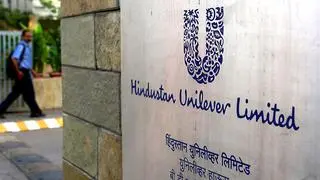The luxury auto segment is the collateral damage of the Government’s recently introduced quality control orders for parts and components, and the segment needs an exemption from these regulations as the luxury volumes are still low, said Gurpratap S Boparai, MD, Skoda Auto Volkswagen India Private Ltd. ŠAVWIPL includes Volkswagen Group’s India businesses and companies (Skoda, VW, Audi, Lamborghini, Porsche, Ducati). In an interview with BusinessLine , Boparai spoke about the ease of doing business in India, what the government can do and the importance of the Indian market for the group, among other topics. Excerpts:
How have things at the Volkswagen Group changed ever since the merger of the three subsidiaries ?
Moving from three companies to one obviously has made us more agile, lot more synergies and faster to react to changes in the market. It all obviously leads to some synergies, which help us, other than save time, also save money. As to the strategy of each individual brand, I think it remains strong and the same, with each brand being a significant player in its segments — that is what we want to achieve with all our brands.
In August, you had flagged the concern of the ease of doing business in India, and how a complete focus on self-reliance (amid the call for atmanirbhar ) is not such a good idea. Given this backdrop, does this change the India strategy for the Volkswagen Group in the long term?
Some of the recent quality control orders and other regulations (announced by the government) are not really helpful for the luxury segments in India, where the volumes are small. You do need a high level of imports simply because there is no business case for localisation. And therefore, we are working with the government — both ourselves as well as with SIAM as an industry body — to try to lessen the impact of these on the luxury segment. On the mass segment, I don't think any player has any problem with these orders. They are clearly not for the luxury segment, unfortunately, it's collateral damage at the moment (for the luxury segment).
What support do you expect from the government?
We want exemption for the luxury segment from all the quality control orders because the volumes are small. Even for getting plants abroad certified etc, in the current situation, the Indian certifying body, BIS, is simply unable to travel abroad. So, there is no way they will be able to complete the certification work before the deadline. Ideally, small volume imports should be completely exempt. If not, then there should be an extension in this deadline. These certifications call for quite significant expenses from ourselves because if our suppliers have to host these audits etc, we ultimately end up paying for them.
What about the higher import tariffs?
So far, the tariffs have not changed. But, the whole industry wants the tariffs on the components to be brought down. Also, today, there are differential rates even on completely built cars, Customs duty, and a 100 per cent duty, and we want it to become one rate. On components, we would want the government to go back to the older rates of 7.5 per cent and 10 per cent as opposed to the 15 per cent at present. There was a stable Customs duty on components for many, many years. And then all of a sudden, two years ago, it was increased significantly. And that obviously has a big impact on everyone. Not just ourselves, everybody has imports. For certain categories of parts, it's not viable to localise — our market isn’t big enough.
The long-term success in the Indian auto market has been contested by some global players. Is this a matter of concern at the Volkswagen Group?
We believe in the potential of the Indian economy, the Indian market. Of course, certain tweaks need to be made to certain policies. I'm sure they will happen. But it's a major market and no big player should be out of it. Having said that, there are day to day challenges that we would rather do without. And I think at some point, the rationalisation of taxation on cars has to happen. I saw some comparisons being made with other countries. I think those were incomplete comparisons. The taxation rates in India — if you also include the registration charges and road taxes etc — are extremely high, they are amongst the highest in the world.
Is there any shift in the strategy for the imported luxury segments that the group operates in (Porsche, Lamborghini, and Ducati motorcycles)?
I don't think the strategy has changed in the sense that there's no way we can have a higher localisation than (what we have) currently. To have higher localisation, you need higher volumes. To have higher volumes, you need taxes that are reasonable. Today, a luxury car, besides the Customs duty, attracts 28 per cent GST, plus cess going up to 22 per cent, and then you add road tax and registration charges — in some States that goes up to 20 per cent. So we're looking at taxation that is over 60 per cent. And, of course, there’s the import duty of 15 per cent right at the interests. So these segments won't grow if there is no rationalisation of the tax structure. And if they don't grow, then there won’t be any further localisation from the current level.
Despite all these hurdles, does India still remain an important market for the Volkswagen group?
Absolutely. And also for the government, the luxury segment is extremely important. Even though it forms just about 1.5 per cent of the overall market, the government earns between the Customs and GST, cess, registration charges and various taxes. 11 per cent of the total revenue of the government from the car industry comes from the luxury segment. So, it's a huge contribution to the state exchequer. So, I don't think it's in the interest of the government also to hurt the segment. Even though small, it contributes a lot to the government coffers.








Comments
Comments have to be in English, and in full sentences. They cannot be abusive or personal. Please abide by our community guidelines for posting your comments.
We have migrated to a new commenting platform. If you are already a registered user of TheHindu Businessline and logged in, you may continue to engage with our articles. If you do not have an account please register and login to post comments. Users can access their older comments by logging into their accounts on Vuukle.